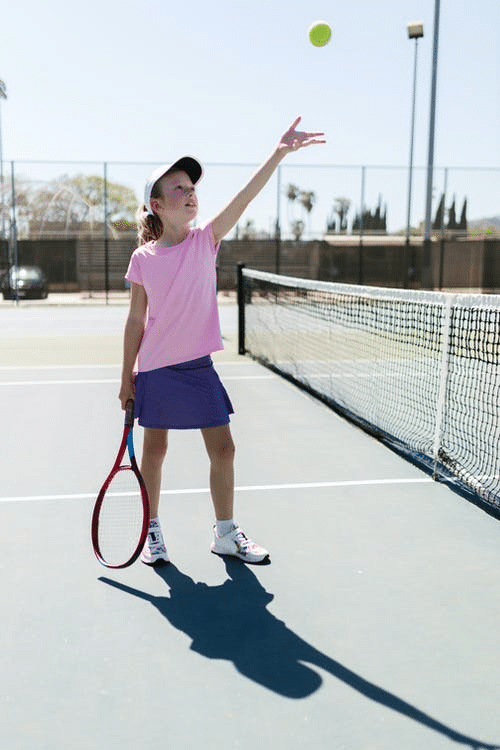As online schooling popularises across the globe, many parents are switching from conventional (in-person) schooling to virtual learning for their children. However, this decision shouldn’t be made hastily. We strongly urge parents to take their time, speak with their child, and understand what’s best for them.
Online schooling offers a ton of benefits to both students and parents. At Cambridge Home School, we provide a quality online British education across four schools: Primary Prep/Key Stage 2 (ages 8 to 10), Lower School/Key Stage 3 (ages 11 to 13), Upper School/IGCSEs (ages 14 to 16), and Sixth Form/AS &A Levels (ages 17 to 19).
Each student is taught by a team of MA/Ph.D. qualified subject specialist teachers. Moreover, we keep the classroom size small (8 to 10 pupils per group) to maximise interactivity. Each student is provided one-on-one attention from their teachers. This, in turn, helps them pay closer attention to the lessons, get individualised help with specific topics and subtopics, and perform exceptionally well on their exams.
Our students absorb and retain knowledge exceptionally well, which helps them secure top grades. Our institution also stands out for its:
- Well-rounded, independent curriculum
- One-on-one success coaching and pastoral support to students
- 24/7 parental access to children’s coursework
- Three parent-teacher consultations per year (one in each term)
- Focus on student mental health, personal enrichment, and social development
- Focus on helping students develop a healthy school-life balance
If your child is between the ages of 11 and 13, understanding whether online schooling will be fruitful for them is imperative. Pre-teens and fresh teens (13-year-olds) respond to online schooling exceptionally well.
In most cases, parents have to navigate a slight learning curve as they switch to online schooling for younger students (ages 8 to 10). Older students are a lot more cognisant of the benefits of virtual learning. They can easily comprehend how the switch will prove to be beneficial.
Since online schooling entails greater flexibility, focused learning, and a healthier school-life balance, pre-teens, and teenagers appreciate the transition a lot more than younger students.
In this blog, we’ll probe deeper and offer a closer look at how to decide if online schooling is right for your child aged 11 to 13. Continue reading, take notes, and take the right measures accordingly to provide the best educational experience to your child.
Your Child’s Routine

As a parent, start by taking a closer look at your child’s routine. Do they play competitive sports? Are they passionate about exploring their interests and hobbies after school? Do they enjoy socialising with their friends? Are they fond of going on excursions and similar activities? Online schooling is a great option if your child’s routine includes activities that promote skill building, personal development, and social growth.
Our students enjoy ample flexibility. They’re not required to spend long hours at school shuffling in and out of classrooms. By structuring focused, engaging, interactive, and stimulating classes, our teachers increase knowledge absorption and retention among students. As a result, students can digest more information in a shorter span of time.
Think about it. In a conventional classroom, students often zone out and get distracted. Since the student-teacher ratio is fairly high, the teachers struggle to identify students who have veered off track. There are little to no efforts to help these students become involved in the lesson again, which results in frequent loss of attention. This affects a student’s academic performance.
At Cambridge Home School, we maintain a low student-teacher ratio (8-10:1). If a student loses focus at any point, they’re promptly and empathetically brought back on track. This plays a big role in helping students learn better in less time. By facilitating focused learning, we ensure that students have ample time to engage in their favourite hobbies, play skill-building games, develop their interests, and socialise with their friends after school.
Our students also play competitive sports like tennis, horse riding, fencing, polo, and sailing. We deeply value the importance of sports. As an institution that’s immensely proud of Emma Raducanu’s recent success in the US Open, we want our students to perform just as well. If students are overburdened by academics, their sporting development can be affected.
This isn’t to say that academic growth isn’t important. It’s imperative; however, retaining the right balance has always been our biggest priority. Our students are encouraged to develop a healthy interest in both academics and non-academics. They study and revise meticulously, play competitive sports, make time for personal growth, enjoy time off with friends and family, and develop as young individuals.
By helping students between the ages of 11 and 13 maintain this tricky balance, we ensure that they a) secure top grades, b) enjoy good mental health, and c) perform well in other aspects of their life (sports, etc.). If you want your child to reap the benefits of a flexible routine, online schooling is the right decision for them. They won’t feel overburdened, overwhelmed, or fatigued by navigating so many things without getting the break they need.
Since each aspect of their life (academic and non-academic) is neatly and carefully sectioned with the right duration, our students learn, grow, and perform well without feeling like they have too much on their plate. We work hard to maintain this balance. As stated earlier, each student is provided one-on-one success coaching and pastoral support to help them enjoy a healthy school-life balance and become a well-rounded individual.
Academic Growth

Parents often make the switch to online schooling if their child hasn’t been performing well in school. Has your child’s academic performance declined over the past few months? If so, we strongly recommend enrolling them in a reputable online school that has a strong focus on academic growth.
Our MA/Ph.D. qualified subject specialist teachers leverage cutting-edge educational tools, resources, software solutions, and technology to deliver effective lessons. Each teacher is experienced, qualified, and committed to uncovering student potential.
At Cambridge Home School, we train our teachers to identify each student’s unique strengths and weaknesses, and customise their teaching approach accordingly. This is extremely important for younger students between the ages of 11 and 13. They’re in an active learning phase that entails curious, critical, and creative thinking.
Instead of squashing children’s passion for learning, institutions should work on increasing and maintaining it. This is precisely why we use an individualised approach. Each student is provided one-on-one attention. Our teachers pick up on their unique learning patterns and teach accordingly, so students learn better.
For instance, if a 12-year-old student is struggling with a certain subtopic in Math while their classmates have excelled in it, our teachers will take their time and revisit that topic numerous times for the student who’s struggling. This has a couple of benefits.
For starters, the student who’s struggling is able to get their concepts cleared. There’s no risk of them falling behind. In addition, the same concept is crystallised for other students since it’s repeated a couple of times. This helps the rest of the class get a stronger grasp on said topic. It also teaches them the importance of valuing everyone’s unique learning patterns and empathetically providing support when it’s needed.
By focusing on individualised and collective academic growth in students, we help them perform exceptionally well in class. Our students actively participate and build on their knowledge and skills. This approach helps them secure top grades, which is a strong focus at Cambridge Home School.
In June 2021, 86% of Cambridge Home School’s IGCSE students secured A*s and As (9 to 7 grades) in their target subjects. 83% of students achieved two As and a B or higher, as required by top universities. Moreover, all students who applied received offers from some of the leading universities across the globe.
Our students have a great track record, and we largely attribute it to a) their own hard work, b) our individualised teaching strategy, c) the dedication of our teachers, and d) our focus on building soft skills like consistency in students.
Opportunities for Non-Academic Development

As stated earlier, we have a strong focus on helping children grow academically and non-academically. Unfortunately, many parents solely double down on academic growth in students. If students aren’t encouraged to enjoy after-school activities and made to study and revise for the bulk of the day, they’ll underperform.
Excessive studying and revision can trigger poor mental health. Instead of securing top grades, students who feel burned out perform poorly and potentially develop stress, anxiety, or even depression if they’re pushed to unhealthy limits.
Student mental health is extremely important to us. We strike the perfect balance between academic growth and non-academic development to ensure that each student benefits from good mental health. If you want your child to have a varied learning experience, we strongly recommend switching to a reputable online school.
Students who attend online school often go on family trips with their parents to learn about new cultures, languages, traditions, and customs. They’re exposed to new ideas for self-enrichment.

Since online schooling offers enhanced flexibility, students can still attend their classes so long as a distraction and interruption-free workstation is set up in the hotel room. In addition to exploring other cities and countries, our students also grow personally and socially. These factors increase their interest in academics.
Students aren’t deprived of anything. By offering ample flexibility, we help them feel content, work hard, and perform well. This balance is extremely important in young students between the ages of 11 and 13. At this juncture, students are learning about themselves. Their interests, passions, and personalities are developing and evolving.
Unfortunately, conventional schooling often affects this balance. Since students are overworked, they seldom get a chance to explore their interests, go on family trips during school months, and have varied experiences. Students return home feeling tired, fatigued, and overwhelmed. They may spend some time with their family and friends and explore their interests a tad. However, the extent of personal and social development is largely superficial.
If a student plays competitive sports, they’ll struggle to balance academics with excellent sports performance in a conventional schooling setting. Online schooling offers incredible flexibility, which makes it easier for students to prioritise non-academic facets of their lives as well.
Our students enjoy a wide range of sports, games like scrabble and chess, and excursions like hiking, biking, sailing, swimming, backpacking, trekking, waterboarding, etc. We make sure that our students aren’t deprived of the opportunity to learn new things and satiate their thirst for curiosity and creativity. If you want your child to have a diverse schooling experience with a strong focus on both academic and non-academic growth, online schooling is an excellent option.
—
FAQ
What age groups does Cambridge Home School cater to?
Cambridge Home School offers online British education for various age groups, divided into four main schools: Primary Prep/Key Stage 2 for ages 8 to 10, Lower School/Key Stage 3 for ages 11 to 13, Upper School/IGCSEs for ages 14 to 16, and Sixth Form/AS & A Levels for ages 17 to 19.
How is individual attention ensured for each student?
At Cambridge Home School, the focus is on keeping classroom sizes small, accommodating 8 to 10 pupils per group. This allows for one-on-one attention from MA/Ph.D. qualified subject specialist teachers, helping students perform exceptionally well in their studies.
What kind of extra support do students receive?
In addition to academic support, Cambridge Home School offers one-on-one success coaching and pastoral care. The institution also emphasises student mental health, personal development, and social growth. Parents have 24/7 access to their child’s coursework and can schedule up to three parent-teacher consultations per year.
Does Cambridge Home School support non-academic activities?
Yes, the institution highly values extracurricular activities, including competitive sports like tennis, horse riding, fencing, and others. The curriculum is designed to help students maintain a healthy balance between academics and personal interests, including sports and hobbies.
Is online schooling suitable for children between 11 and 13 years?
Online schooling at Cambridge Home School is particularly beneficial for children aged 11 to 13. This age group responds exceptionally well to the focused, interactive learning environment and enjoys the increased flexibility and school-life balance offered by online education.